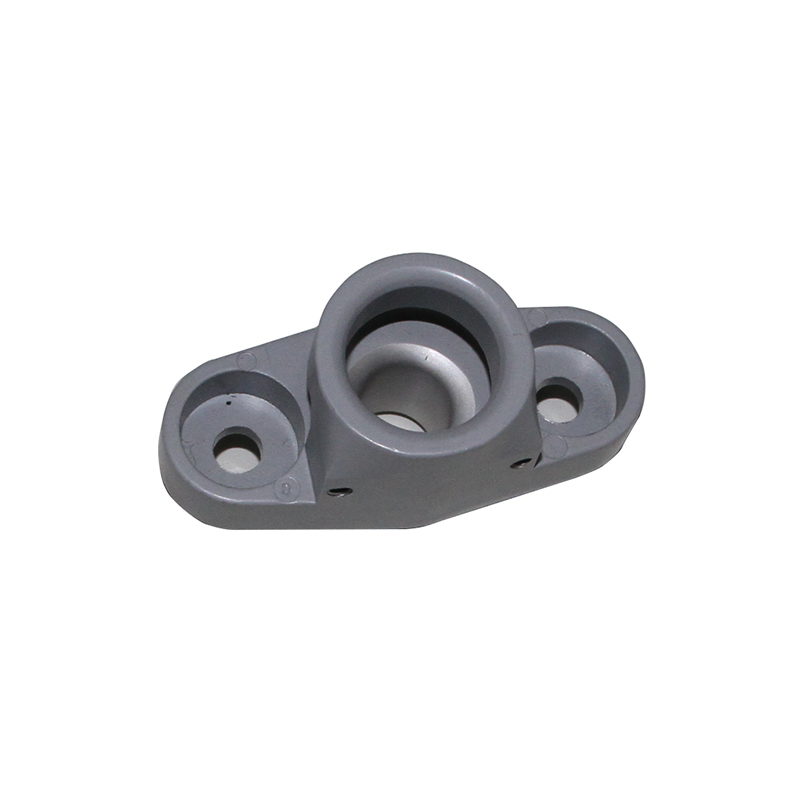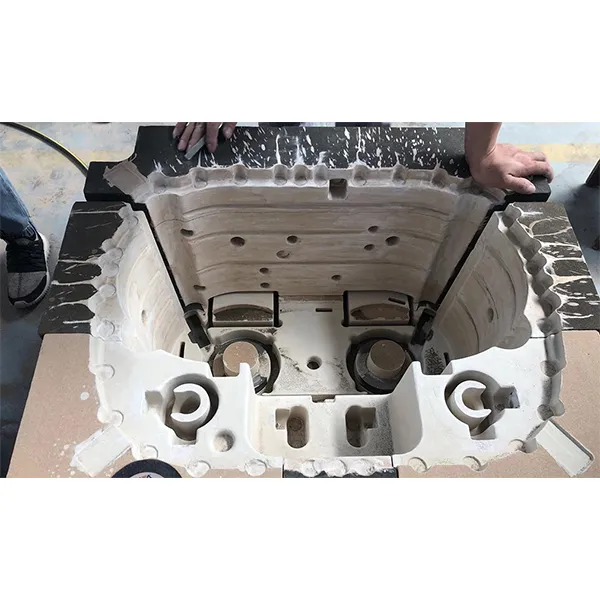The Duty of Aluminum Foundries ahead of time Lightweight Production Solutions
Light weight aluminum foundries substantially add to the advancement of lightweight manufacturing solutions. Their cutting-edge spreading modern technologies produce high-strength, lightweight components necessary for industries such as automotive and aerospace. This innovation not only boosts product performance but also promotes sustainability via making use of recycled products. As these shops adapt to emerging innovations and methods, they lead the way for future advancements in manufacturing performance and ecological obligation. What lies ahead in this transformative trip?
The Benefits of Lightweight Materials in Production
As sectors progressively look for performance and sustainability, the fostering of light-weight materials in manufacturing has actually become a vital technique - Precision aluminum casting. These materials, particularly aluminum and compounds, offer countless benefits that improve production procedures and product efficiency. Largely, their lowered weight adds to decrease energy intake during transport and operation, bring about substantial price savings
Additionally, light-weight materials facilitate the design of more complex geometries, permitting greater development in item advancement. This versatility often causes boosted capability and performance, providing to the progressing demands of contemporary consumers.
Additionally, the usage of light-weight products can boost the durability of items due to their resistance to deterioration and tiredness. This longevity not only minimizes upkeep costs however additionally sustains sustainability efforts, as longer-lasting items add to much less waste. To sum up, the advantages of lightweight products are pivotal in driving efficiency, innovation, and environmental obligation in manufacturing.
Developments in Aluminum Spreading Technologies
Current innovations in light weight aluminum casting innovations are revolutionizing the production landscape, specifically in the production of light-weight components. Innovations such as high-pressure die casting and vacuum die spreading have actually greatly boosted the precision and surface area coating of aluminum components - Aluminum Casting Company. These methods enable the production of complicated geometries while decreasing material waste and boosting mechanical residential properties

In addition, the execution of real-time monitoring systems guarantees quality assurance throughout the spreading procedure, causing more constant product outcomes. Jointly, these technologies not just boost the performance of aluminum parts yet also sustain the industry's change towards even more sustainable manufacturing techniques.
Applications of Aluminum Elements in Numerous Industries
While aluminum elements have long been used in numerous markets, their convenience and light-weight residential properties remain to drive ingenious applications across sectors such as automotive, aerospace, and building and construction. In the automotive market, light weight aluminum is increasingly made use of for engine blocks, wheels, and body panels, boosting gas efficiency and efficiency. Aerospace manufacturers utilize light weight aluminum for airplane frameworks and parts, taking advantage of on its strength-to-weight ratio to boost fuel economy and haul capability.
In the building and construction sector, light go to the website weight aluminum is preferred for home window structures, roofing, and architectural components, giving toughness and resistance to rust while reducing total building weight. Furthermore, the electrical and electronic devices industries gain from aluminum's conductivity and lightweight nature, utilizing it in circuitry, enclosures, and warmth sinks. These diverse applications highlight the important function of aluminum parts, which not only satisfy sector demands but additionally add to developments in item style and capability across several areas.
Sustainability and Power Efficiency in Aluminum Foundries
The aluminum foundry sector plays a critical function in advertising sustainability and power effectiveness, especially as need for light-weight parts proceeds to grow across numerous fields. Foundries are progressively adopting eco-friendly methods, such as utilizing recycled light weight aluminum, which substantially decreases energy intake and greenhouse gas exhausts contrasted to primary light weight aluminum production.
Advancements in casting modern technologies enhance power efficiency by enhancing the melting procedures and reducing waste. Strategies like die casting and financial investment spreading enable for precise product use, minimizing excess and scrap.
Furthermore, lots of factories are investing in renewable power resources to power operations, better reducing their carbon impact. Carrying out energy administration systems allows factories to keep an eye on and enhance energy use, guaranteeing they operate at peak efficiency.

Future Fads in Lightweight Production Solutions
Just how will arising modern technologies shape the future of lightweight production solutions? Technologies such as innovative products, automation, and additive production are established to redefine manufacturing procedures. The combination of clever manufacturing technologies, consisting of the Internet of Points (IoT) and expert system (AI), will enable real-time tracking and optimization, improving efficiency and reducing waste.

As sustainability proceeds to be a vital worry, light-weight services will increasingly concentrate on reusing and recycling products, straightening with round economy concepts. This development in lightweight production will certainly not just improve item efficiency yet also add to ecological objectives, making certain that the market remains competitive in a swiftly transforming market landscape.
Frequently Asked Inquiries
How Do Light Weight Aluminum Foundries Guarantee Top Quality Control in Production?
Aluminum shops ensure high quality control in manufacturing with strenuous testing, standardized procedures, and continual surveillance - Precision aluminum casting. They implement skilled personnel and sophisticated technologies to keep uniformity, lower problems, and fulfill market criteria throughout the manufacturing procedure
What Are the Main Tests Encountered by Light Weight Aluminum Foundries?
Light weight aluminum shops encounter difficulties such as changing resources expenses, maintaining production effectiveness, making my blog certain consistent high quality, adapting to technical advancements, and conference environmental guidelines, all of which impact their overall functional effectiveness and competition on the market.
Just How Does Light Weight Aluminum Recycling Influence Foundry Operations?
Aluminum reusing significantly enhances foundry operations by decreasing raw material expenses, reducing energy intake, and decreasing ecological impact. This lasting technique allows factories to boost effectiveness while meeting increasing demand for lightweight, high-performance aluminum products.
What Skills Are Required for Employees in Aluminum Foundries?
Employees in aluminum factories require abilities in metallurgy, machining, quality control, and safety and security practices. Proficiency in operating equipment, recognizing alloy homes, and problem-solving are also necessary for reliable manufacturing and maintaining high security criteria.
Exactly How Do Light Weight Aluminum Foundries Manage Waste Monitoring?
Aluminum factories take care of waste with reusing scrap metal, utilizing efficient waste partition techniques, and sticking to ecological policies. They implement sustainable practices to lessen garbage dump contributions, guaranteeing that dangerous materials are thrown away sensibly.
Light weight aluminum click for source shops significantly add to the advancement of lightweight production solutions. Recent improvements in aluminum casting modern technologies are reinventing the production landscape, specifically in the manufacturing of lightweight components. While light weight aluminum elements have long been utilized in numerous sectors, their versatility and light-weight residential or commercial properties proceed to drive innovative applications throughout markets such as automobile, aerospace, and construction. Furthermore, the electrical and electronics sectors profit from light weight aluminum's conductivity and light-weight nature, using it in electrical wiring, enclosures, and warm sinks. The aluminum shop industry plays a vital duty in promoting sustainability and power performance, especially as demand for light-weight parts continues to expand across various fields.